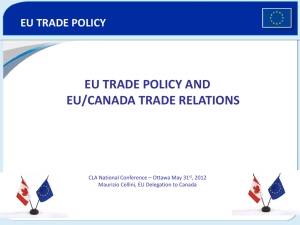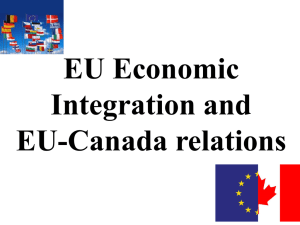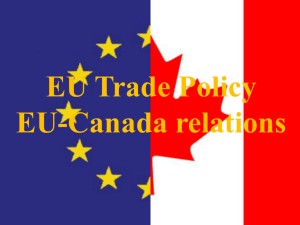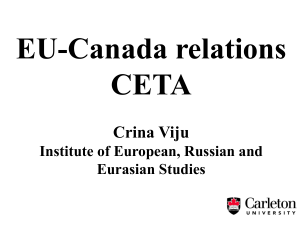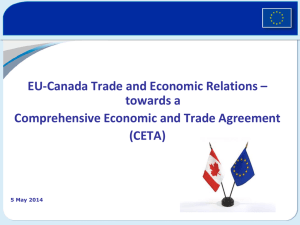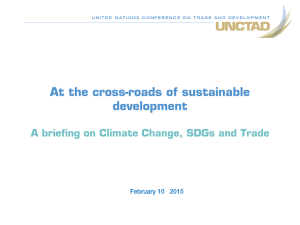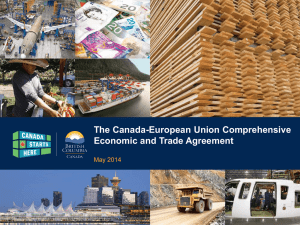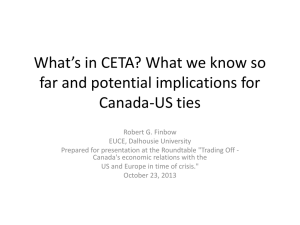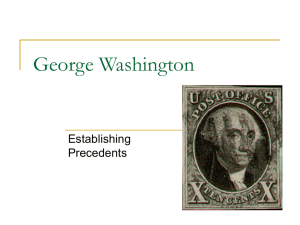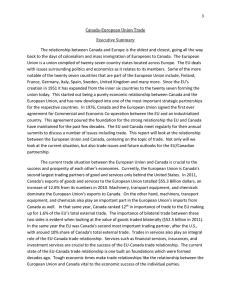CETA Negotiations between Canada and the EU
advertisement
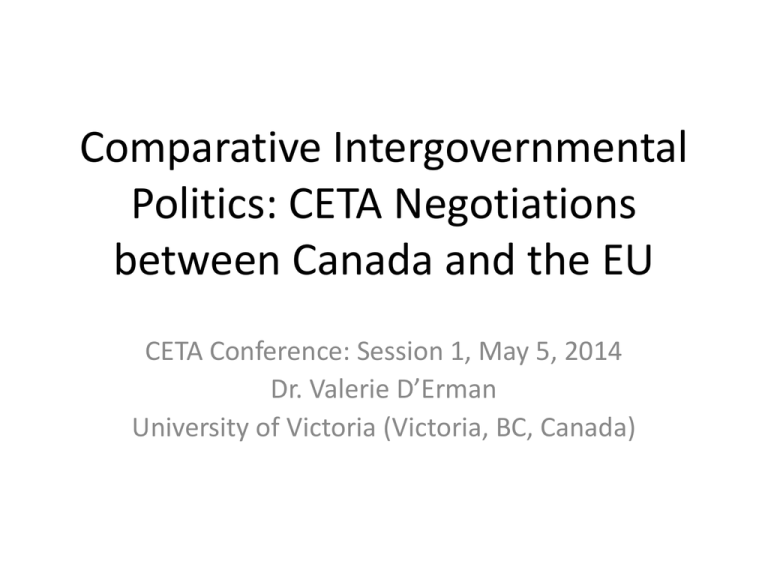
Comparative Intergovernmental Politics: CETA Negotiations between Canada and the EU CETA Conference: Session 1, May 5, 2014 Dr. Valerie D’Erman University of Victoria (Victoria, BC, Canada) Introduction and background • Canada and EU prevalent examples of federallike governance • Early attempts at CETA stalled due to WTO talks and lack of provincial involvement • Significant of this FTA agreement: – Leverage helped EU assert norms of procedure – Precedent for provincial “pre-commitment” – International recognition of EU principle of ‘subsidiarity’ Negotiations • New precedent in Canada for involvement of sub-national governments • One-sided debate over liberalization of services and public procurement • Sectoral protest within Canadian provinces • Criticism over lack of transparency Significance • Success of EU in getting demands met and in exporting norms of procedure • Possible precedent for EU-U.S. negotiations (TTIP)? • Theoretical understandings of federalism – Contrast between Canada and EU as federal-like polities – Lack of nation-state or elected executive in EU – Internal market coherence much stronger in EU, and resulting ability to negotiate Conclusions • PARADOX • EU Single Market and federalism – Visible and central goal of European integration – Prior deregulation among member states already achieved through intergovernmental negotiation – Treaty-based governance over constitutionalism – Activist role of the ECJ • EU intergovernmental-supranational relations as a successful model of federal governance rather than a federation with qualifiers


